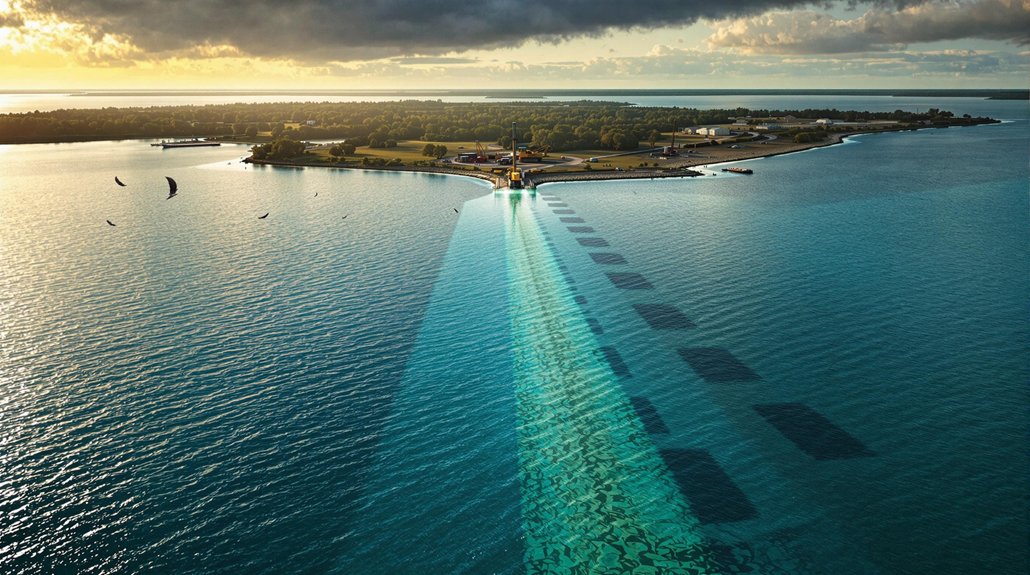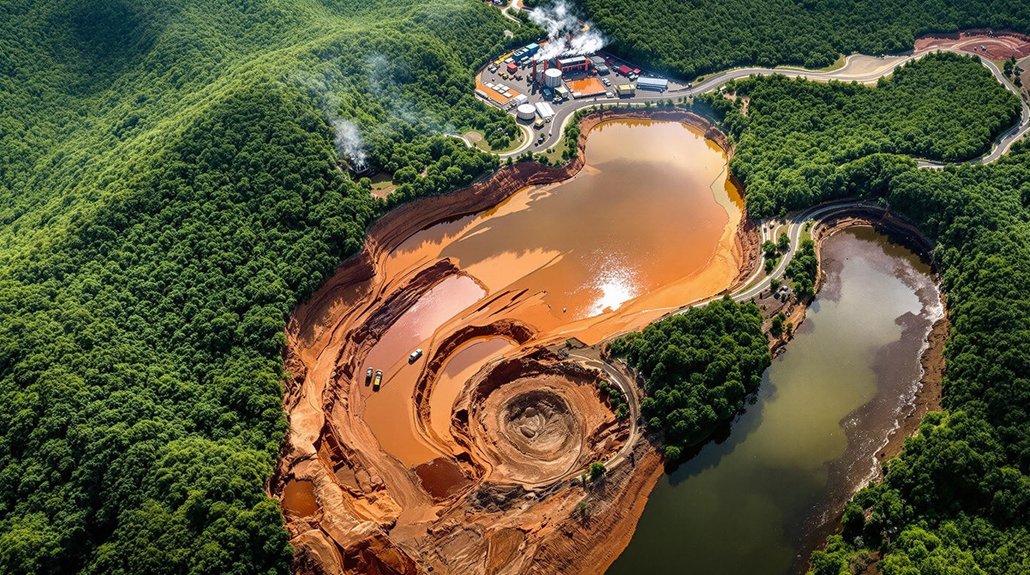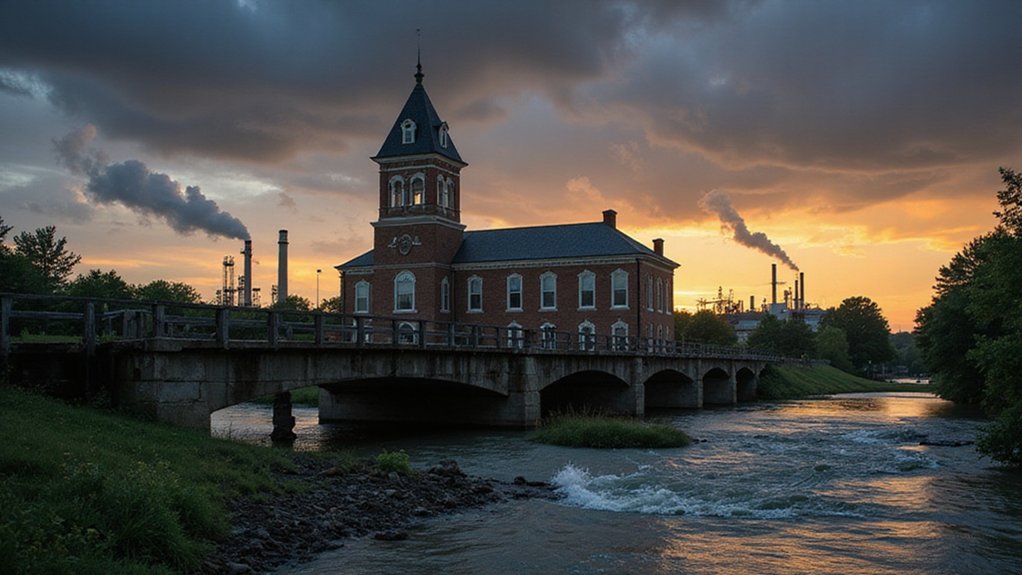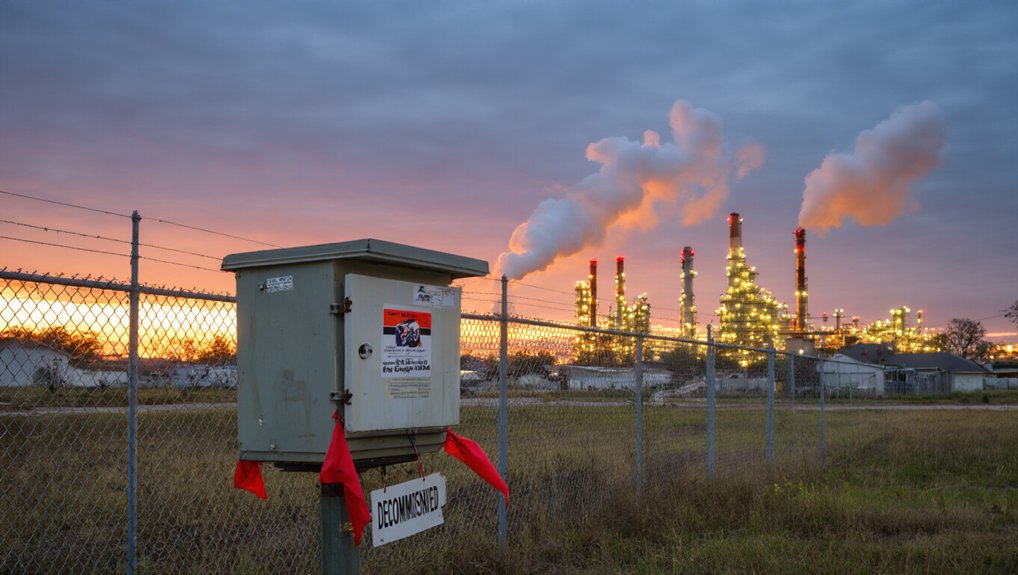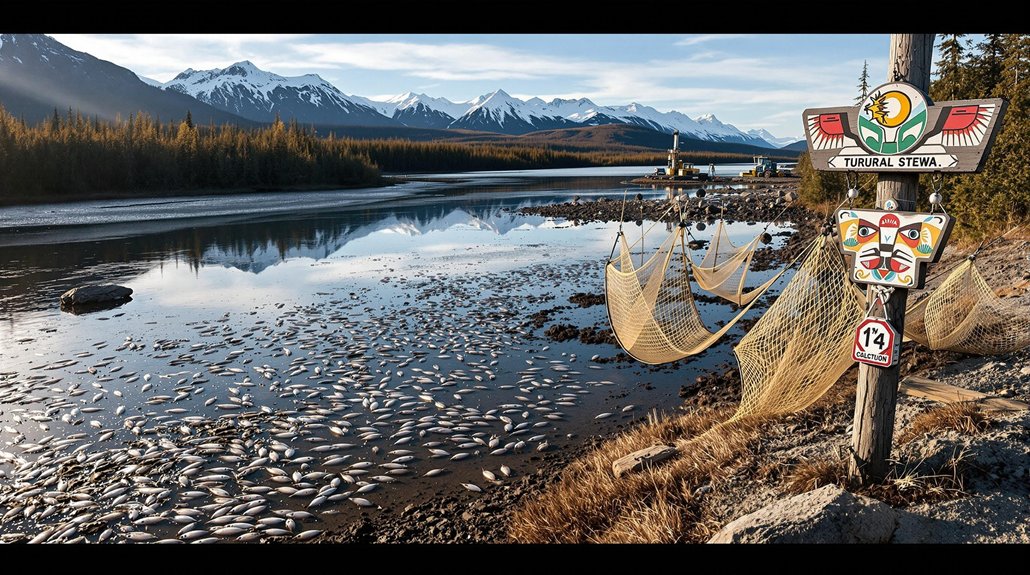Six Michigan tribes abruptly quit federal discussions on Line 5 after the Army Corps invoked an “energy emergency” to fast-track Enbridge’s tunnel project. Tribal leaders are fuming—their treaty rights ignored while fossil fuel interests take priority. Go figure. The Bay Mills, Little River, Sault Ste. Marie, Grand Traverse, Match-E-Be-Nash-She-Wish, and Nottawaseppi Huron bands see their sovereignty reduced to a checkbox in the rush. This latest chapter reveals the deepening battle over Great Lakes waters.
Six Michigan Tribes have abruptly withdrawn from federal discussions about the controversial Line 5 pipeline, slamming the door on talks with the U.S. Army Corps of Engineers. The tribes bailed after learning officials planned to fast-track approval for Enbridge’s tunnel project under the Straits of Mackinac. Because nothing says “respecting indigenous rights” like rushing through environmental reviews.
The Bay Mills Indian Community, Little River Band of Ottawa Indians, Sault Ste. Marie Tribe of Chippewa Indians, Grand Traverse Band of Ottawa and Chippewa Indians, and both the Match-E-Be-Nash-She-Wish and Nottawaseppi Huron Bands of Potawatomi made the joint decision. They’d been participating as “cooperating agencies” under NEPA. Fat lot of good that did.
Tribal leaders didn’t mince words. The Corps’ sudden invocation of an “energy emergency” to expedite the process was the last straw. Their treaty rights? Ignored. Their concerns about sacred sites and water protection? Brushed aside. Tribal sovereignty? Apparently just a nice concept for government brochures.
Tribal sovereignty once again reduced to a checkbox on the government’s infrastructure approval assembly line.
Enbridge wants to replace the aging pipeline segment with a tunnel beneath the Straits. The current deadline to halt Line 5 operations is June 2026. The project still requires multiple agency approvals, including permits from Michigan’s Department of Environment, Great Lakes, and Energy. The project still needs multiple approvals, including permits from Michigan’s EGLE.
This withdrawal follows another setback for the tribes. The Michigan Court of Appeals recently rejected their challenge to the project. But they’re not giving up the fight.
The proposed tunnel design is unprecedented. Safety concerns abound. An oil spill would devastate the Great Lakes and treaty-protected waterways. That’s not hyperbole – it’s basic geography.
The tribes vow to continue fighting through other channels. Legal challenges will likely pile up. Meanwhile, this conflict highlights the ongoing tension between energy infrastructure demands and environmental protection. The tribes argue that transitioning to renewable energy would better serve both environmental and indigenous interests while significantly reducing carbon emissions.
The accelerated approval process appears to be in accordance with President Trump’s Executive Order declaring an energy emergency, further exacerbating tribal concerns about proper consultation.
And the persistent question: When will tribal consultation be more than just a box to check?
For the tribes, this isn’t just about a pipeline. It’s about their lands, their waters, their future. Full stop.
